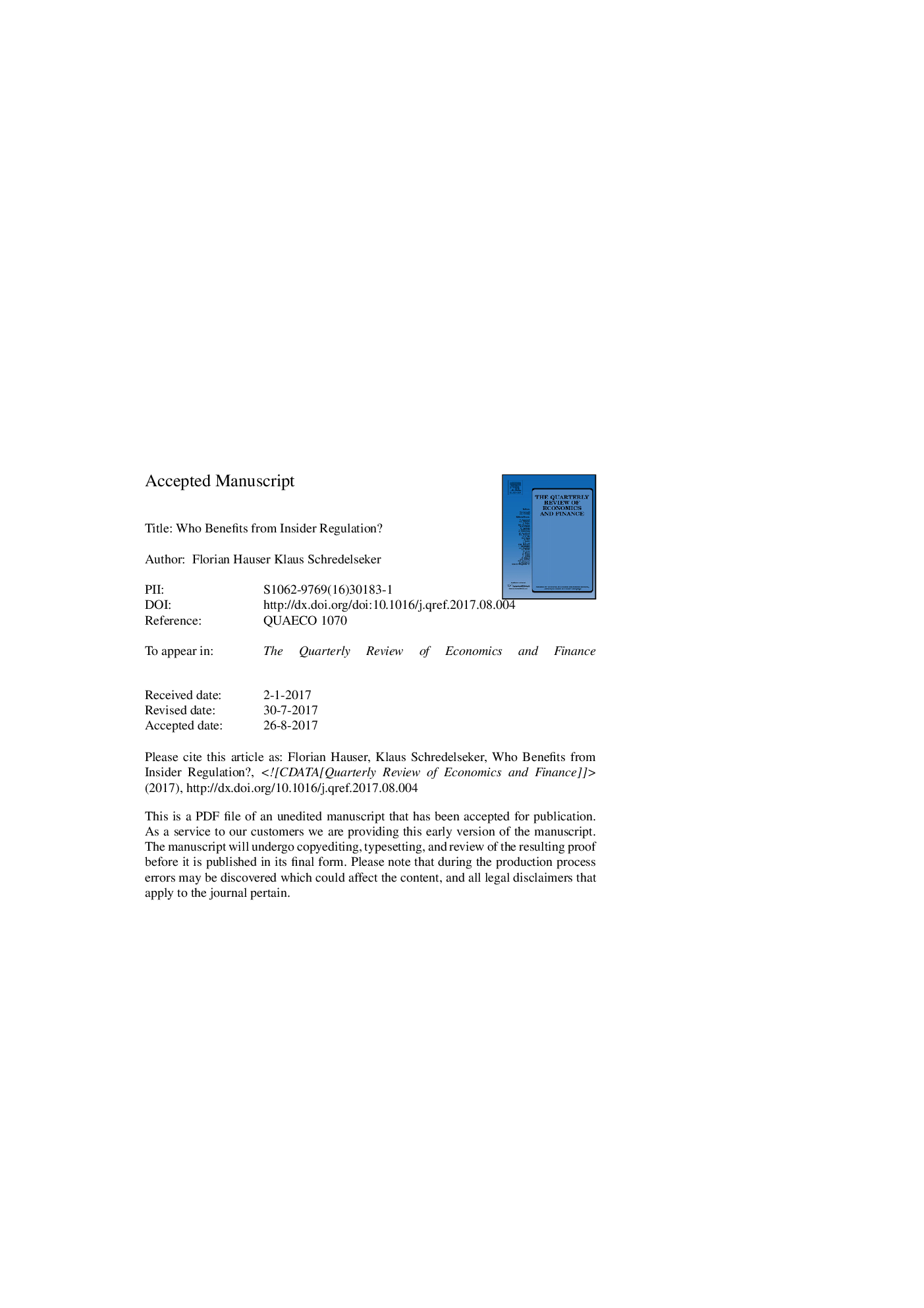| Article ID | Journal | Published Year | Pages | File Type |
|---|---|---|---|---|
| 7383437 | The Quarterly Review of Economics and Finance | 2018 | 39 Pages |
Abstract
The scope of insider trading regulation in financial markets is to enhance fairness by reducing information asymmetry. Even if this comes at the price of lower informational efficiency, it is regarded to increase the attractiveness of the market by protecting low-informed investors. Using agent-based modeling, we show that this argument does not hold. Our results indicate that very well informed traders profit the most from prohibiting informed insider trading, while low-informed traders hardly experience any benefit at all or may even be worse off than without inside regulation.
Keywords
Related Topics
Social Sciences and Humanities
Economics, Econometrics and Finance
Economics and Econometrics
Authors
Florian Hauser, Klaus Schredelseker,
